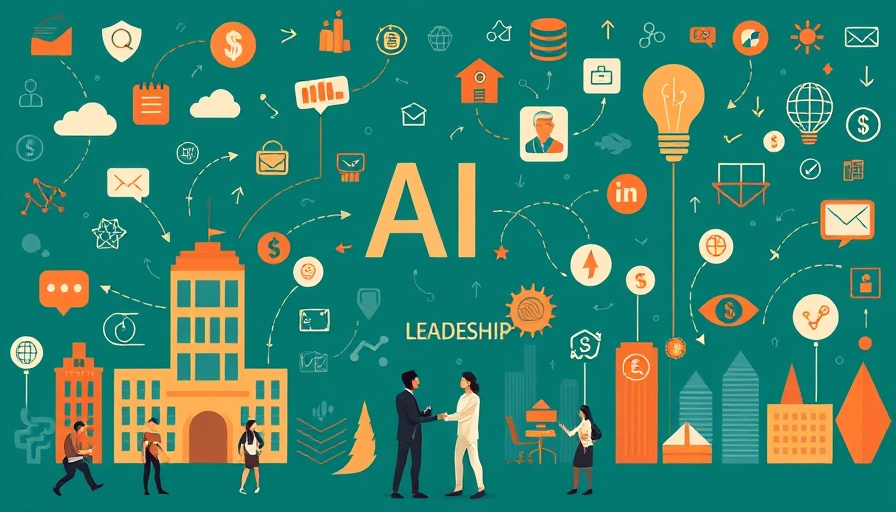
The AI Leadership Shift: Transforming Workplace Dynamics
In today’s fast-evolving corporate landscape, the application of artificial intelligence (AI) in leadership is garnering significant attention. Workers increasingly believe that AI can enhance leadership effectiveness, helping to bridge communication gaps and streamline decision-making processes. The premise is simple yet profound: by leveraging AI, leaders can gain deeper insights into employee needs and preferences, thus fostering stronger teams and improving overall morale.
The Impact of Emerging Technologies on Leadership
As we observe the rise of tech companies in San Antonio and elsewhere, the integration of AI into leadership practices is becoming an essential trend. Organizations are embracing AI not just for operational efficiency but to cultivate a more engaged workforce. This technological ascension offers leaders tools for real-time feedback and analytics, vital for making informed decisions that resonate with employees.
Understanding Employee Sentiment: A Turning Point
According to recent findings, employees express a high level of optimism toward AI-assisted leadership. This shift is rooted in the potential for AI to minimize biases and promote meritocracy within the workplace. As the local economy in San Antonio continues to thrive, small business owners and entrepreneurs are increasingly looking to AI for a competitive edge. These tools can help prioritize employee well-being, ensuring roles align more closely with individual strengths and aspirations.
Counterarguments: The Human Element of Leadership
However, the dialogue surrounding AI in leadership isn't without its critics. Skeptics argue that over-reliance on technology may undermine the importance of human intuition and emotional intelligence in leadership roles. There is concern that AI could depersonalize workplace interactions, potentially alienating workers who value face-to-face engagement. These varying perspectives must be considered to balance AI integration with maintaining essential human connections.
Future Insights: The Role of AI in Shaping Leadership
As we look ahead, it is vital to envision how AI will shape future leadership models in San Antonio and beyond. Initiatives spearheaded by local chambers of commerce could play a crucial role in fostering an environment where tech companies and startups collaboratively explore the interplay between AI and human leadership. Entrepreneurs can leverage AI’s capabilities to enhance their operations while also focusing on the individual growth of their workforce.
Practical Insights: Implementing AI in Your Organization
Organizations considering the adoption of AI tools should start with targeted training programs to educate leaders and teams about the benefits and functionalities of these technologies. Utilizing AI-driven platforms can streamline recruitment processes by analyzing vast amounts of data and offering insights that would typically take human analysis tremendous time to produce.
The Value of Understanding AI in Leadership
Ultimately, the value of understanding AI's role in leadership cannot be overstated. As we navigate this technological frontier, leaders who grasp AI’s potential can improve team dynamics, enhance morale, and foster a culture of innovation. For business owners in San Antonio, particularly startups and local entrepreneurs, embracing these changes could provide a significant advantage in a competitive marketplace.
Conclusion: Embrace the AI Revolution
In conclusion, the rising acceptance of AI within leadership roles is a powerful testament to the changing dynamics of the workplace. Leaders, entrepreneurs, and employees must work together to navigate and shape this transition. To stay ahead, consider participating in local entrepreneur events or networking sessions focused on AI’s impact on business. Engaging in these discussions can provide valuable opportunities for collaboration and insights into successfully integrating AI within your leadership strategies.
 Add Element
Add Element  Add Row
Add Row 



Write A Comment